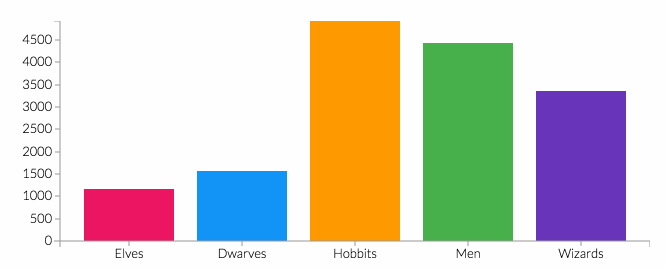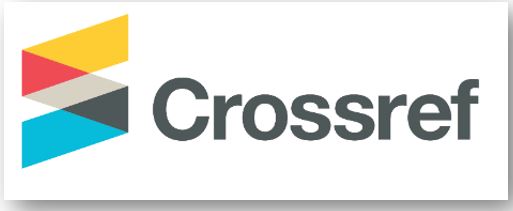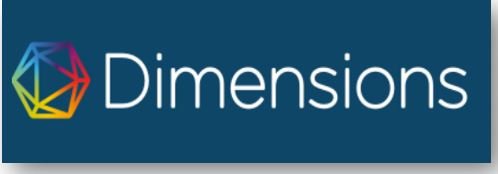The Effectiveness of Poverty Alleviation in Increasing Economic Development in Kudus Regency
DOI:
https://doi.org/10.61231/miftah.v1i2.136Keywords:
Economic Development, Government Programs, and Poverty AlleviationAbstract
This research is motivated by the relationship between poverty alleviation and economic development in Kudus Regency. Kudus Regency has very significant challenges to high poverty and economic disparities in the Kudus Regency area from 2021 to 2022. This study aims to analyze or find out the effectiveness of poverty alleviation efforts that have been carried out by the Kudus Regency government in the context of improving the economy. The research method used was a qualitative descriptive analysis method by obtaining data from the Central Bureau of Statistics (BPS). The data was used to analyze the effectiveness of poverty alleviation efforts, the amount of poverty, and the factors that cause poverty in Kudus Regency. The research illustrates that poverty in Kudus Regency is caused by factors such as lack of skills or expertise, people's mindset is too stagnant towards work, consumptive behavior, and low production productivity. Poverty alleviation efforts that have been carried out by the Kudus Regency government through programs including UMKM, village funds per sub-district, and the SDGs program which have a positive impact on reducing poverty and can improve the welfare of the people of Kudus Regency so that the relationship with economic development and poverty alleviation certainly requires an approach comprehensive.
References
Aprianto, K., & Edwin, N. (2017). Kemiskinan Dalam …. Islamiconomic?: Jurnal Ekonomi Islam, 8(2), 169–188.
Badriah, L. S., & Soedirman, U. J. (2019). Ketimpangan Distribusi Pendapatan Kaitannya Dengan Pertumbuhan Ekonomi Dan Kemiskinan Serta Faktor-Faktor Yang Mempengaruhinya. Journal And Procceding FEB UNSOED, 9(232), 232–248.
Bukhari, E. (2021). Pengaruh Dana Desa dalam Mengentaskan Kemiskinan Penduduk Desa. Jurnal Kajian Ilmiah, 21(2), 219–228.
Ellya, R. (2019). Kemiskinan Dalam Perspektif Struktural Fungsional. Journal Raden Intan, 14(1), 19–34.
Fadhilah Putri Anintya, E. a. (2023). Jurnal komunikasi hukum. Jurnal Komunikasi Hukum, 9, 747–765.
Fadila, N. (2023). Kemiskinan dan Alat Ukur Kemiskinan dalam Islam. Journal On Education, 05(03), 9662–9673.
Fahrizi, D. A. (2023). Pengaruh Globalisasi Dalam Bidang Pembangunan Ekonomi Dan Pelestarian Lingkungan. JMCBUS?: Journal Of Management and Creative Bu, 1(3), 78–87.
Fuady, M. R. F., & Fuady, M. (2021). Kemiskinan Multidimensi dan Indeks Pembangunan Manusia di Indonesia. Jurnal Tata Loka, 23, 575–582.
Hanly, S. D. F. (2018). Strategi Pertumbuhan dan Pembangunan Ekonomi Daerah. Jurnal Pembangunan EKonomi Dan Keuangan Daerah, 18, 1–11.
Ma, R., & Cahyadi, I. F. (2023). Pengaruh Inflasi , Indeks Pembangunan Manusia , dan Kemiskinan terhadap Pertumbuhan Ekonomi Tahun 2015- 2021 dalam Perspektif Ekonomi Syariah ( Studi Kasus di Kabupaten Kudus ). JEBISKU?: Jurnal Ekonomi Dan Bisnis Islam IAIN Kudus, 1(1), 97–113.
Masruroh, Yulia Et., A. (2014). Kemiskinan Dalam Pembangunan. Jurnal Analisa Sosiologi, 3, 70–90.
Masruroh, Y. (2014). Kemiskinan Dalam Pembangunan. Jurnal Analisa Sosiologi, 3, 70–90.
Muhamad, A. R., & Rahmi, D. (2023). Ekonomi terhadap Indeks Pembangunan Manusia Jabar. Jurnal Riset Ilmu Ekonomi Dan Bisnis (JRIEB), 3, 45–52.
Nawir, A., & Sinjai, U. M. (2022). Penerapan Program Sustainable Development Goals (SDGs) Desa Polewali Dalam Mengurangi Kemiskinan. DEMOKRASI?: Jurnal Ilmu Pemerintahan, 2(1), 1–18.
Pabelan, I., Telp, K., & Arif, M. (2023). Efektivitas Program Pemerintah Dalam Pengentasan Kemiskinan Di Kabupaten Kudus. Jurnal Ekonomi Pembangunan STIE Muhammadiyah Palopo, 9(1), 71–82.
Pilihanto, G., Chofyan, I., Perencanaan, P., & Teknik, F. (2023). Strategi Pengentasan Kemiskinan di Desa Kemuning Kecamatan Ngargoyoso Kabupaten Karanganyar. Jurnal Urban Dan Regional Planning, 3, 41–49.
Pramesti, F. A., & Diponegoro, U. (2018). Akuntabilitas Pemerintah Desa Dalam Pengelolaan Alokasi Dana Desa di Desa Temulus Kecamatan Mejobo Kabupaten Kudus. Journal Of Politic and Government Studies, 7, 131–140.
Prasetyoningrum, A. K. (2018). Analisis Pengaruh Indeks Pembangunan Manusia ( IPM ), Pertumbuhan Ekonomi dan Pengagguran Terhadap Kemiskinan di Indonesia. Jurnal Ekonomi Syariah, 6, 217–240.
Pratama, N. B., & Purnomo, E. P. (2020). Sustainable Development Goals ( SDGs ) dan Pengentasan Kemiskinan Di Daerah Istimewa Yogyakarta. SOSIOHUMANIORA?: Jurnal Imiah Ilmu Sosial Dan Humaniora, 6(2), 64–74.
Rachmawati, M. (2020). Kontribusi sektor umkm pada upaya pengentasan kemiskinan di indonesia. INTELEKTIVA?: Jurnal Ekonomi, Sosial, Dan Humaniora, 01(07), 1–13.
Safwadi, I., Ibrahim, L. T., & Astini, D. (2022). Analisis Strategi Pembangunan Daerah Tertinggal di Aceh Besar. Jurnal Humaniora, 6(1), 79–88.
Selo, S. (1974). Setangkai Bunga Sosiologi. Yayasan Badan Penerbit Fakultas Ekonomi Universitas Indonesia.
Sofian, M. Y., Dwijaya, R., & Rachmalija, S. (2022). Kebijakan Anti Kemiskinan Program Pemerintah Dalam Penanggulangan Kemiskinan Di Indonesia. Jurnal Inovasi Penelitian, 2(10), 3209–3218.
Sugiyono. (2010). Metode Penelitian Pendidikan Pendekatan Kuantitatif, Kualitatif dan R &D. Alfabeta.
Tampi, G. B. (2018). Implementasi Kebijakan Pemerintah Daerah Dalam Pengentasan Kemiskinan (Studi di Distrik Kuari Kabupaten Tolikara Provinsi Papua). E-Jurnal Unsrat, 3, 65–87.
Ted, B. K. (2006). Theories Of Poverty And Anti Program In Community Development.
Ulum, M. (2013). Mahir Analisa Data SPSS Statistical Product, Service Solution. Ghaneswara Yogyakarta.
Ulum, M. (2020). Basic Statistic With Statistical Package for Social Sciences. CV Pustaka Ilalang Lamongan.
Ulum, M. ., & Mun’im, A. . (2023). Leadership and Performance of Teachers and Employees of SMK Sunan Drajat Lamongan. Multidisciplinary Journal of Education , Economic and Culture, 1(1), 1–12. https://doi.org/10.61231/mjeec.v1i1.48
www.bpkp.go.id. (2009).
Zamjani, I. (2018). Pelaksanaan Program Indonesia Pintar Bagi Penerima Kartu Indonesia Pintar Reguler?: Studi di Empat Daerah Kunjungan Kerja Presiden Tahun 2017. Jurnal Penelitian Kebijakan Pendidikan, 11, 64–82.
Downloads
Published
Issue
Section
License
Copyright (c) 2023 Lailatul Maulida Azzahra, M. Arif Hakim, Yuliana Dewi Rahmawati

This work is licensed under a Creative Commons Attribution 4.0 International License.
You are free to:
- Share — copy and redistribute the material in any medium or format for any purpose, even commercially.
- Adapt — remix, transform, and build upon the material for any purpose, even commercially.
- The licensor cannot revoke these freedoms as long as you follow the license terms.
Under the following terms:
- Attribution — You must give appropriate credit , provide a link to the license, and indicate if changes were made . You may do so in any reasonable manner, but not in any way that suggests the licensor endorses you or your use.
- No additional restrictions — You may not apply legal terms or technological measures that legally restrict others from doing anything the license permits.
Notices:
You do not have to comply with the license for elements of the material in the public domain or where your use is permitted by an applicable exception or limitation .
No warranties are given. The license may not give you all of the permissions necessary for your intended use. For example, other rights such as publicity, privacy, or moral rights may limit how you use the material.














